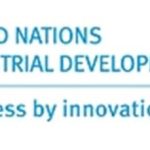An important narrative is unfolding across South Africa as the nation commemorates Youth Month. At the core of this narrative lies digital transformation, innovative technology, and the relentless pursuit of solutions to address youth unemployment. It presents a vision of collaboration between the technology sector, education system, and industry stakeholders to advance digital literacy, thereby opening doors for the younger generation to gainful employment and enhanced social mobility.
South Africa’s youth, vibrant and eager to make their mark, represent over 35% of the population. However, they face the daunting challenge of staggering unemployment rates: 63.9% for those aged 15-24 and 42.1% for those aged 25-34. Alongside this pressing issue, the digital divide emerges as an equally significant obstacle.

In 2018, the National Education Infrastructure Management System (NEIMS) revealed that only 4,675 out of 23,471 schools had internet connectivity for teaching and learning. Recent reports indicate that a mere 22% of households have a computer, with only 10% having nationwide internet access.
The global technological revolution positions the local tech industry as a potential game-changer in this context. Its potential lies not only in creating tech-related jobs but also in influencing education, fostering digital literacy, and inspiring a new generation of digital natives.
Collaboration is the key to unlocking the youth’s potential.
Meaningful initiatives must be implemented to leverage technology for improved access to education and skill development. HP, a tech giant, serves as an illustrative example with its initiatives. HP LIFE, a global training program, offers free and accessible IT and business skills training courses in multiple languages. This online and offline program equips individuals worldwide, including South Africa, with future-oriented skills. The Digital Equity Accelerator, a collaboration between the Aspen Institute and HP, invests in organizations that expedite digital inclusion, advancing social and economic equality.
Additionally, the Innovation and Digital Education Academy (HP IDEA) program, in partnership with the Umlambo Foundation, enhances the digital capabilities of educators in local South African schools. By 2023, this initiative aims to enroll 30,000 teachers, bringing innovation to classrooms and potentially benefiting hundreds of thousands of students. In a celebration of the significance of Youth Month, HP South Africa has recently joined forces with the National Youth Development Agency (NYDA) to empower the youth with digital skills, impacting 20,000 young individuals over the next three years. This collaboration reaffirms HP’s commitment to supporting youth entrepreneurship skills through HP LIFE.
The integration of technology in the education sector is further highlighted by the Cambridge Partnership for Education’s EdTech Fellowship with HP. This seven-month program focuses on enhancing digital transformations in education systems across Sub-Saharan Africa, addressing challenges from connectivity and device availability to digital content creation and digital skills development.
Beyond providing resources and platforms, the tech sector must tap into the agility and creativity of the younger generation. By creating opportunities for their ideas to flourish and manifest into tangible outcomes, the tech sector can drive innovation from within.
Working towards tangible solutions to bridge the digital divide
However, bridging the digital divide and addressing youth unemployment in South Africa requires a multi-faceted approach. It demands sustained investment in digital infrastructure, ongoing initiatives for skills development, and inclusive policies that bridge the digital divide. Government policies and regulations must foster the proliferation of digital infrastructure and ensure access to quality education. Simultaneously, educational institutions must adapt their curricula to integrate digital literacy and other skills required for the modern job market.
Moreover, the tech industry should continue to foster a culture of innovation and entrepreneurship. Creating avenues for start-ups and supporting incubation centers can stimulate job creation, innovation, and economic growth. Additionally, efforts should focus on aligning job skills with market demands through re-skilling and up-skilling initiatives targeted at the youth.
The current trends in Artificial Intelligence, machine learning, big data, and cybersecurity indicate that these fields will play a significant role in shaping the future job landscape. As a result, it becomes crucial to implement re-skilling and up-skilling initiatives that specifically target the youth. These programs can help align their skills with these emerging trends and prepare them for the job market of tomorrow.
Furthermore, there exists a pressing need for mentorship and guidance, especially in the tech industry, which is filled with experienced professionals and success stories. Mentors from this industry can provide invaluable assistance to the youth, guiding them on their career paths, helping them navigate challenges, and enabling them to seize opportunities within the tech sector.
Youth Month serves as a compelling platform to reevaluate the country’s strategic approach to development. The urgent requirement for digital literacy and its potential to address youth unemployment is evident. The technology sector plays a pivotal role in fostering an environment that facilitates learning, innovation, and job creation.
It is essential to acknowledge that the tech industry does not operate in isolation; its efforts should be part of a larger, multi-stakeholder collaboration. By harnessing technology as a catalyst, it becomes possible to empower the youth, promote social mobility, and contribute to the nation’s socioeconomic prosperity. This compelling narrative should define the country’s future, driving transformative change in South Africa and setting a powerful precedent for the rest of the world.
Source: IT NEWS AFRICA



















Add Comment